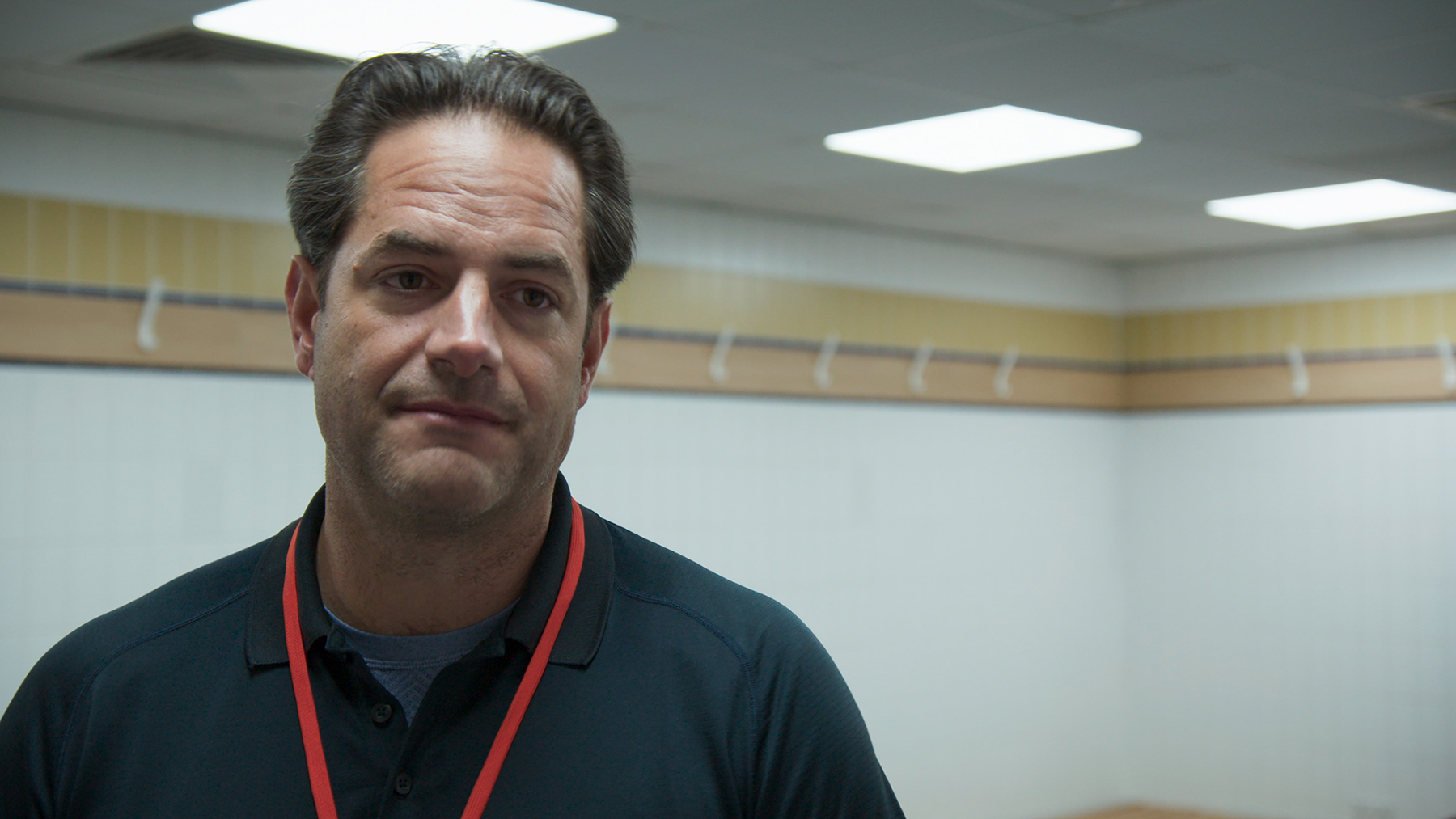Why Sunderland ‘Til I Die on Netflix is the perfect Premier League substitute
A timely reminder of non-fantasy football

It’s been 12 hours and 22 days since the English Premier League took its love away, but Netflix has come to the rescue with a new series to save football fans from feeling like teary Sinead O’Connors: the second season of classic docuseries Sunderland ‘Til I Die.
If you didn’t see the watch-through-your-fingers first season, then you’ve got one of the finest sports documentaries of recent years to catch up on. And if you did, then the second season, which has landed on Netflix today, is a superb follow-up for very different reasons.
What makes Sunderland ‘Til I Die so compelling? It helps that former Premier League giant Sunderland FC and its fans, who again supply the documentary’s most touching moments, are seemingly addicted to gut-wrenching drama. As one fan remarks, “in 90% of the games I've watched, we've either been going for promotion or fighting relegation”.
But it’s the high-level access and impeccable timing of Sunderland ‘Til I Die that makes it so gripping. Both seasons strap you into a red-and-white striped rollercoaster during one of the most tumultuous two-year periods in the history of any football club. And this second season has the added punch of being a perfectly timed reminder of everything that is good, bad and utterly bonkers about English football.
- These are the best Netflix documentaries you can watch right now
- Small TV sales skyrocket as viewers stay indoors – but do you need one?
- The best indoor TV antennas 2020: 7 great digital TV antennas for inside your home

The Office with shinpads
Every fly-on-the-wall documentary needs compelling characters, and Sunderland ‘Til I Die delivers again like the Fed Ex of sporting melodrama. We join Sunderland FC just as the baton (or trophy-sized poisoned chalice) of ownership is passed to some fresh faces – the chalk-and-cheese double act of owner Stewart Donald and Chief Executive Charlie Methven.
It’s the latter who delivers several scenes that are almost as agonisingly compelling as Sunderland’s on-pitch exploits. Like a cross between David Brent from The Office (UK) and Bob Mortimer’s Train Guy, Charlie Methven clearly fancies himself as a Steve Jobs-level marketing genius – and lets Sunderland’s poor “marcomms” team know that they must look to him to “see what good looks like”.
The scene where Methven attempts to convince them that Tiesto's 'Adagio for Strings' should be the club's new walkout song is straight out of the David Brent cringe comedy playbook.
Get daily insight, inspiration and deals in your inbox
Sign up for breaking news, reviews, opinion, top tech deals, and more.

Fortunately, the docuseries is balanced enough to also include scenes that show this ex-Etonian’s clear passion for his unlikely adopted home, and owner Stewart Donald’s moments of real fallibility.
The most memorable of these comes halfway through the series on January transfer window deadline day, the decisive last stage of the season at which clubs can buy or sell players (for US readers, imagine a mid-season equivalent of the NFL Draft).
As midnight looms, the hitherto composed club owner is seen pacing around Sunderland’s bare office, playing what can only be described as real-world Football Manager, as he toys with making a last-gasp record signing. Whoever you support, it’s genuinely tense stuff.
It’s this ability to draw back the curtain on the human side of well-worn football cliches that makes Sunderland ‘Til I Die a fitting substitute for the real thing. Sometimes, watching the Premier League can feel like visiting a gallery of world-class sculptures in glass boxes, all of which are ‘kindly on loan’ from their billionaire owners.
While this series does certainly have mawkish tendencies, not least in its skippable opening titles, it does also capture a community feel that’s rarely seen in football’s glitzy upper echelons.

'Hopefully, this is the turning point'
This authenticity is supplied by a cast of local characters, who are all long-suffering Sunderland supporters with various coping mechanisms.
Taxi driver Peter Farrer returns from the first season to deliver pithy one-liners with a knowing grin. An ex-soldier and his wife talk about the feeling of military-like togetherness that being a Sunderland fan provides in civilian life. And then there’s club chef Joyce Rome, the eternal optimist and surely the series’ emotional core, who has only seen the team play twice in 20 years because she “can’t bear to watch them”.
The Sunderland players don’t shy away from brutal honesty either. With fewer sponsorship deals to scupper, they’re free to talk candidly on topics like mental health and the difficulties of playing in a pressure cooker like the Stadium of Light, which was built for Premier League crowds of over 40,000 and now stands as a looming reminder of the club’s former stature.
Both midfielder Luke O’Nien and defender Tom Flanagan are refreshingly open about the downsides of having an intense fanbase that places the burden of its emotional wellbeing on your shoulders every weekend.
But whenever Sunderland ‘Til I Die starts to feel a bit too weighty, you’ve always got Methven on hand to deliver lines like “that was heroically bad defending on a Napoleonic scale" with a straight face.

Better than City
Is in its first season, these characters and sub-plots help prevent Sunderland ‘Til I Die from becoming a two-dimensional advertorial like Amazon’s charmless ‘All or Nothing: Manchester City’.
In football’s pantheon of fly-on-the-wall series, it's up there alongside The Four Year Plan, which tells the story of underachieving London club QPR’s extraordinary takeover by a billionaire consortium, and which remains the high watermark of ‘when football ownership goes wrong’ docs); and the classic Graham Taylor: An Impossible Job, which covers the ups and downs of the colorful former England coach's tenure in the early 1990s.
A wise TV producer once said that a successful documentary needs to make the audience feel one of three things: “that is me”, “I wish that was me” or “thank God that’s not me”. For all its failings, the success of Sunderland ‘Til I Die is one of those rare series that gives sports fans a taste of all three.
Add Sunderland 'Til I Die to your Netflix list
- Netflix, Amazon Prime, Hulu or Disney Plus: which streaming service is winning 2020 so far?
- Why BT Sport and Sky should refund subscribers for the suspended football
- Stream safely from anywhere - discover the very best Netflix VPN

Mark is TechRadar's Senior news editor. Having worked in tech journalism for a ludicrous 17 years, Mark is now attempting to break the world record for the number of camera bags hoarded by one person. He was previously Cameras Editor at both TechRadar and Trusted Reviews, Acting editor on Stuff.tv, as well as Features editor and Reviews editor on Stuff magazine. As a freelancer, he's contributed to titles including The Sunday Times, FourFourTwo and Arena. And in a former life, he also won The Daily Telegraph's Young Sportswriter of the Year. But that was before he discovered the strange joys of getting up at 4am for a photo shoot in London's Square Mile.